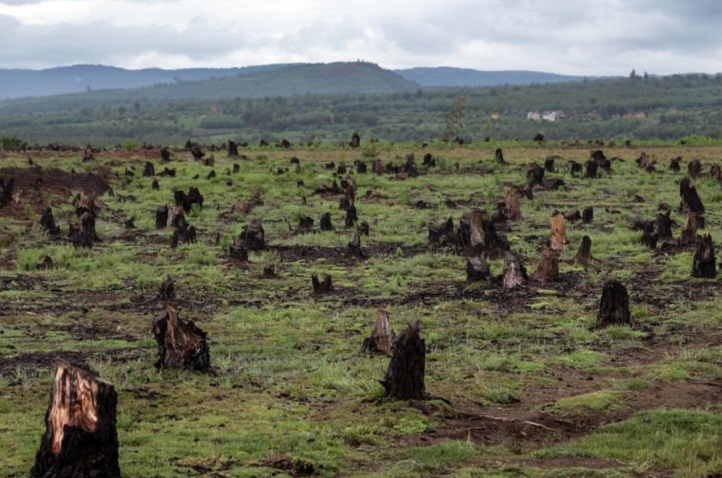11 Dec 2024

Tired Earth
By The Editorial Board

According to a study published on 11 November 2022 by the Global Carbon Project, global CO2 emissions are expected to reach 40.6 billion tonnes in 2022, leaving only a 50-50 chance of avoiding exceeding 1.5°C warming in nine years' time. The report places deforestation in the DRC among the main drivers of global CO2 emissions.
The 2022 report on CO2 emissions produced by the Global Carbon Project and its international team of around 100 scientists, and funded by the BNP Paribas Foundation, was published on 11 November 2022. It shows that global CO2 emissions are expected to reach 40.6 billion tonnes in 2022, up 1% from 2021 and close to the 2019 record of 40.9 billion tonnes.
Although not a major CO2 emitting country, the Democratic Republic of Congo (DRC) is singled out for its role in forest conversion. The central African country is cited, along with Indonesia and Brazil, as the main areas of the world with the highest CO2 emissions from deforestation. Researchers from the Global Carbon Project note that emissions from land-use change, particularly deforestation, are expected to reach 3.9 billion tonnes of CO2 in 2022. Indonesia, Brazil and the DRC contribute 58% of these global emissions.
According to the UN Food and Agriculture Organisation (FAO), the DRC has the highest rate of deforestation. From 1990 to 2015, the deforestation rate in the DRC remained constant at 0.20%, which is equivalent to the loss of 311,000 hectares per year. A publication by the Center for International Forestry Research (CIFOR) provides a net rate that doubled between the two periods analysed, from 0.11% between 1990-2000 to 0.22% between 2000-2005.
CO2 emissions from fossil fuels
Fossil fuel emissions are the main contributor to global warming. According to the study, CO2 emissions from fossil fuel consumption, notably oil, gas and coal, will exceed their record levels in 2022, after the Covid-19 air gap.
Global fossil CO2 emissions are expected to increase by 1% from 2021 to a total of 36.6 billion tonnes of CO2, slightly above pre-Covid-19 levels in 2019. Emissions from coal are expected to increase by about 1%, but could lead to a new global peak. This is partly linked to the energy crisis, which is causing many European countries to restart their old coal-fired power plants. The same is true for oil emissions, which are up by about 2%, mainly due to the rebound in international aviation, although they are still below the 2019 level. Gas emissions are also expected to fall slightly in 2022 by about 0.2% and cement emissions will be reduced by about 1.6%.
Each year, this international consortium of researchers takes stock of global CO2 emissions. The researchers state that “to achieve zero CO2 emissions by 2050, we would now need to reduce emissions by about 1.4 billion tonnes of CO2 each year”.
Source : afrik21.africa
Comment